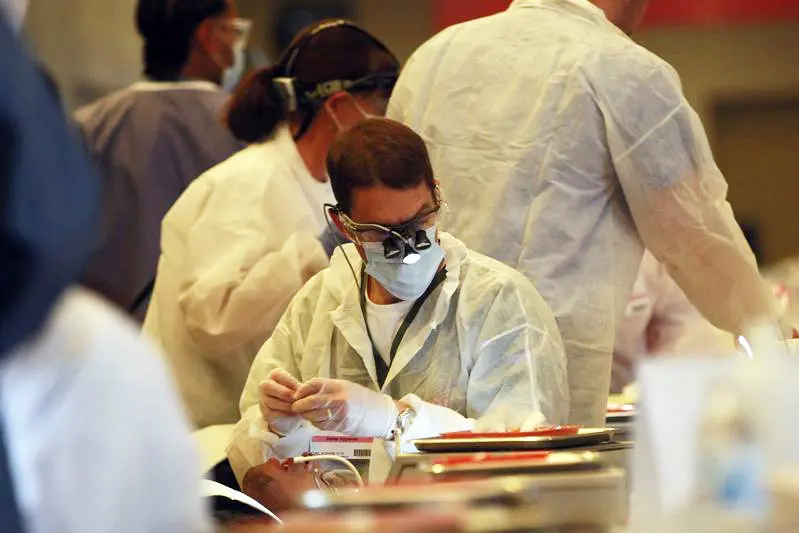PHOTO
A new health insurance law is set to take effect at the start of the upcoming school year, extending medical coverage to students at universities and vocational training centres in Morocco's latest step towards universal coverage.
The inclusion of the hundreds of thousands of students enrolled in higher education represents a significant step towards achieving nationwide access to health care - a basic right enshrined in a 2011 constitutional reform - as around 38% of the kingdom's 33m-person population is currently without medical coverage, according to the Ministry of Health.
As a growing share of the population becomes eligible for state-sponsored health care, authorities will have to contend with greater pressure on the supply of medical services and facilities.
Medical billIn late July the parliament approved a law to extend coverage to public and private university students and those pursuing vocational training, with insurance for freelance and self-employed persons to follow.
The government plans to shoulder the full cost of coverage for public university students, with Dh110m (€10.1m) earmarked for an estimated 260,000 students in the first year alone. Meanwhile, the country's 30,000 private university students will be required to pay a Dh400 (€36.71) out-of-pocket annual fee.
The cost of the programme is projected to increase in the years ahead, with the number of qualifying students forecast to nearly double by 2020 to 460,000, according to local media.
The road to universal coverageMorocco has been progressively extending health coverage for over a decade. After rolling out its mandatory employer-based Assurance Maladie Obligatoire (AMO) scheme in 2005, Morocco introduced a secondary programme for low-income families, Régime d'Assistance Médicale (RAMED) in 2009.
RAMED achieved its target of 8.5m beneficiaries at the end of April, bringing the two programmes' coverage to 62% of the population, Hossine El Ouardi, minister of health, told local press.
The expansion has taken place under the aegis of the medical coverage reforms support programme (Programme d'Appui à la Réforme de la Couverture Médicale, PARCOUM), which was initiated in 2002. PARCOUM has been largely financed by development grants and loans from international partners, including €100m from the EU and €235m from the African Development Bank since the programme began.
Now in its third and final phase, PARCOUM plans to expand the RAMED concept to cover the nearly 3.4m self-employed workers in Morocco, as well as their 6.6m dependents. Most of the workers in this category, which account for an estimated 32% of the population, remain uninsured.
Demand for doctorsWhile sufficient financing remains critical to the successful extension of mandatory medical insurance, further improvements to health infrastructure will also be needed to ensure the availability of adequate facilities and trained staff, due to greater demand for services as the university and vocational student scheme and PARCOUM III are implemented.
The health sector in Morocco is already facing a human resource deficit, with just 6.2 doctors per 10,000 people, compared to 11.9 in Tunisia and 12.1 in Algeria. According to the Economic, Social and Environmental Council, there was an estimated shortage of more than 6000 doctors and 9000 nurses last year.
To get ahead of the demand curve, the Ministry of Health has initiated training programmes to boost this ratio to 10 doctors per 10,000 people by 2020, adding 3000 new doctors per year for the next five years.
© Oxford Business Group 2015





















